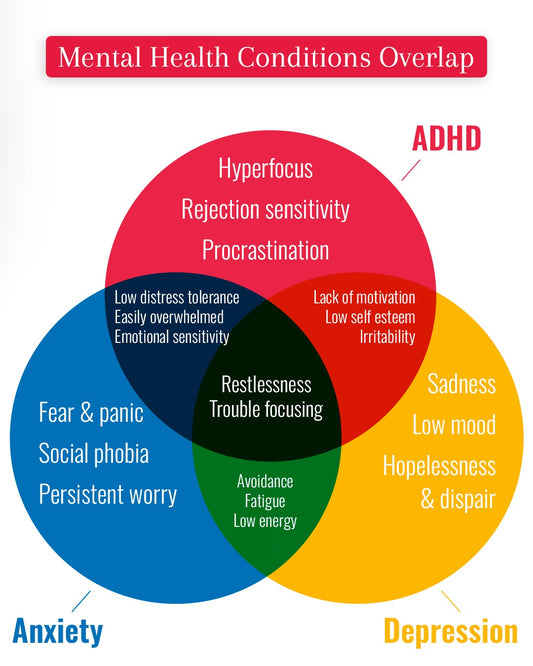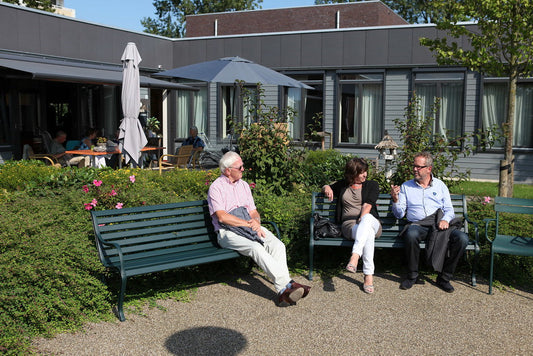
Sundown Syndrome in Person with Dementia or Alzheimer's
WHAT IS SUNDOWN SYNDROME?
Sundown syndrome, better known as sundowning, is a symptom of some forms of dementia. It is also known as ‘late-day confusion’. It is characterized by a state of confusion that occurs during late afternoons and early evenings. Sundowning typically appears in people with mid to late stage dementias. It is estimated that around 20% of people with Alzheimer’s get sundown syndrome. Other research however, places that number at more than 60%. While sundowning tends to occur in people with Alzheimer’s or other dementias, it can also sometimes occur among older people do not have the disease.
QUICK LINKS - TOPICS COVERED:
- WHAT IS SUNDOWN SYNDROME?
- CAUSES OF SUNDOWNING
- SYMPTOMS OF SUNDOWNING
- 10 TIPS FOR DEALING WITH SUNDOWNING
- #1. Observe When It Occurs
- #2. Understand What Triggers the Aggressive Behavior
- #3. Is There A Pattern?
- #4. Be Aware of Your Loved One’s Well-Being
- #5. Learn To Communicate
- #6: Do Not Contradict Your Loved One
- #7: Introduce Positive Stimuli
- #8: Introduce a Hobby
- #9: Change the Subject
- #10: Be Patient and Forgiving
- USING MEDICATION TO MANAGE AGGRESSION
WHY DEMENTIA PATIENTS CAN GET AGGRESSIVE
The exact cause of sundowning is unclear. However, there are several possibly theories that can explain it. One main theory is that it could be due to Alzheimer’s related brain changes that can affect a person’s ‘biological clock’, leading to confused sleep-wake cycles.
Other possible causes of sundowning include:
- Overtiredness: Extreme fatigue can sometimes cause the person’s body to go into overdrive and trigger the symptoms of sundowning.
- Hunger or Thirst: Unmet hunger or thirst needs can agitate the person, especially as they lose their ability to communicate clearly.
- Dimming Light: The dimming of light, both natural and indoors, may perhaps trigger the fear of being unsafe and insecure.
- Hormonal Imbalance: The body goes through various changes in its hormone levels over the day, especially when the sun goes down.
- Discomfort: Bodily discomforts such as any infections, clothing rubbing wrongly against their skin, or pain can also become increasingly unbearable as the day progresses.
SYMPTOMS OF SUNDOWNING
There are several behavioral symptoms with sundowning. They include:
- Confusion
- Aggression
- Anxiety
- Restlessness
- Agitation
- Irritability
- Pacing
- Wandering
- Ignoring directions
- Screaming
- Crying
- Hallucinations
- Delusions
Often the symptoms arise as the person suffers mood swings. They may go from happiness to sadness within a short period of time causing one or more of the symptoms above. Sometime it can become extreme, leading to violence.
When these symptoms arise, for some, the behavioral changes abate after a short while. For others, it can make it hard for them to fall asleep and stay in bed. With their symptoms continuing well into the night, their sleep schedules flip. This leads to both the person with sundowning and their caregiver being sleepy during the day and wide awake all night.
10 TIPS FOR DEALING WITH SUNDOWNING
Dealing with the behavioral changes related to sundowning can seem daunting. While it may not be possible to change them fully, you can take certain steps and precautions in order to contain them. This can help the person with Alzheimer’s to be slightly more comfortable.
#1. Keep a Schedule
Although keeping a schedule can be difficult with dementia, routines actually give the person a sense of comfort and security. Unfamiliar places and things or new activities can cause increase stress or cause confusion and anger. It is best to keep the schedule simple. For example, bath time in the evening, activity time in the afternoon, outdoor walk in the morning, etc. Try to stick to the schedule as best as possible and any changes that need to be made is best eased into.
#2: Light Therapy
Since dimming light could cause anxiety, adjusting the lights in the person’s home is might help reduce the symptoms. For example, as it gets dark outside, increase indoor lighting. You can also install a night light in your loved ones bedroom to reduce agitation when waking up in the middle of the night. There are also light therapy lamps available, which are specifically designed for dementia patients.
#3: Keep Active
For those who have trouble sleeping at night due to sundowning, increasing the amount of physical activity they get can be the solution. Often inactivity during the day and over-napping can make it more difficult for your loved one to fall asleep at night. Simple physical activities such as an evening walk can easily help improve sleep quality and reduce the symptoms of sundowning.
#4: Modify the Diet
Avoid giving specific foods that disrupt sleep such as caffeine or alcohol after a specific time of the day. For example, it is best to keep caffeine limited to mornings. In addition, large meals may increase their agitation and discomfort. Keep evening meals light and simple. However, be mindful to not let them go hungry or thirsty either.
#5: Minimize Stress
It is best to minimize stress in the evening hours. You can do this by avoiding activities that are complex for your loved one. Instead focus on simpler things to do such as taking a walk in the park or playing with a pet.
#6: Ensure Comfort and Familiarity
Unfamiliarity even for a short period of time can be extremely agitating for a person with dementia. New things and sudden changes can exacerbate the situation. Help your loved to feel comfortable by keeping their surroundings familiar. For example, if your loved one is being moved to an assisted living facility, keeping photos of loved ones and bringing items with personal attachment can ease their transition into a new home.
#7: Track Behavior
As mentioned, there are many reasons why sundowning occurs. Similarly, there are many symptoms of sundowning. Therefore one person’s cause and symptoms of sundowning can be quite different from that of another person’s. To help figure out which ones are relevant for your loved one, track their behavior. You can either use a journal or an app on your cell phone to keep track of their daily activities, environment, and behaviors. Over time, you are sure to find patters in their behavior. Once you have a better idea of what increases your loved one’s agitation, you can tackle the problem directly.
#8: Consult with Doctor
Sometimes, bodily discomfort such as pain, swelling, or infections could result in sundowning. It is a good idea to take your loved one for a medical consult every few months. This not only ensures that their source of discomfort is dealt with, it also helps keep them as healthy as they could be.
#9: Music and Calming Sounds
Soft music and other calming sounds can help keep agitation at bay. It can also reduce stress experienced by your loved one. Play gentle music or songs that are reminiscent for your loved one. You can also play relaxing nature sounds such as those of soft waves, birds chirping, etc.
#10: Self-Care
Caring for a person with Alzheimer’s or any other dementia is not an easy task. It is time consuming and requires a lot of mental and physical energy from the caregiver.



